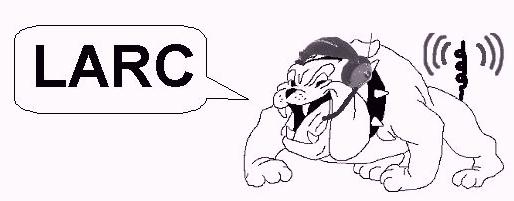
Information For Prospective Amateurs

Here's your invitation to a friendly, high-tech hobby that's got something fun for everyone! You can become an Amateur Radio operator--no matter what age, gender or physical ability. People from all walks of life pass their entry-level exam and earn their Amateur (ham) Radio license. They all share the diverse world of activities you can explore with ham radio.
You never know who you'll run into when communicating with Amateur Radio: Young people, retirees, teachers and students, engineers and scientists, doctors, mechanics and technicians, homemakers...
| boaters |  |

Listen to an astronaut talk to students using ham radio. |
| and astronauts... | ||
 |
and even
entertainers! |
 |
Getting started in ham radio has never been easier! We invite you to explore the following information and learn about Amateur Radio. We know you'll enjoy this fascinating world of Amateur Radio, and we hope to have the chance of meeting you on the air--when you become an Amateur Radio operator!
A FUN Hobby...

Listen to a Morse Code transmission in RealAudio. |

Hams exchange pictures of each other using television. Some also like
to work on electronic circuits, building their own radios and antennas.
A few pioneers in Amateur Radio have even contributed to advances in technology
that we all enjoy today. There are even ham-astronauts who take radios
with them on space shuttle missions and thrill thousands of hams on earth
with a call from space!
With a SERIOUS Side...

Listen to amateurs
talking through an FM voice repeater (RealAudio).
Using even the simplest of radio setups and antennas, amateurs communicate with each other for fun, during emergencies, and even in contests. They handle messages for police and other public service organizations during all kinds of emergencies including:
|
 |
Where Do I Start?
It's Easy to Get Started
The most popular license for beginners is the Technician Class license,
which requires only a 35 multiple-choice question written examination.
The test is written with the beginner in mind. Morse Code is not required
for this license. With a Technician Class license, you will have all ham
radio privileges above 30 megahertz (MHz). These privileges include the
very popular 2-meter band. Many Technician licensees enjoy using small
(2 meter) hand-held radios to stay in touch with other hams in their area.
Technicians may operate FM voice, digital packet (computers), television,
single-sideband voice and several other interesting modes. You can even
make international radio contacts via satellites, using relatively simple
equipment.
Study Guides
The American Radio Relay League publishes
popular ham radio license study guides to help you learn the things you'll
need to pass your exam and have fun with Amateur Radio. LARC has many copies
of these guides that you're more than welcome to borrow for as long as
you want.
Attend a club meeting
Members of the Le Mars Community Amateur Radio Club would be glad to
show you where to get started. We conduct licensing classes, in a fun and
informative environment. Contact
us today!